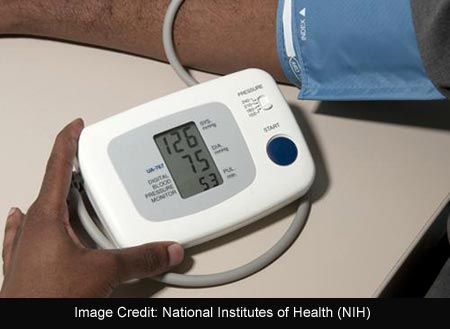
Hypertension is known to trigger severe conditions, like heart disease, stroke and kidney disease. Supposedly, diet, physical activity and obesity all add to the risk of high blood pressure. However scientists claimed that genetics could also play a significant role.
It was estimated that nearly one-third of U.S. adults experience hypertension. However, the situation appears grim in the African-American community, where the condition seems to affect 39 percent of men and 43 percent of women.
“This work underscores the value of using genomic tools to untangle the complex genetic factors that influence the risk for hypertension and other common diseases. We hope these findings eventually will translate into better ways of helping the millions of African-Americans at risk for hypertension, as well as improved treatment options for other populations,†mentioned Eric Green, M.D., Ph.D., scientific director for the National Human Genome Research Institute (NHGRI), part of NIH.
In order to obtain their findings, experts were noted to have examined DNA samples from 1,017 participants in the Howard University Family Study. This is a multigenerational study of families from the Washington, D.C., metropolitan area who recognized themselves as African-American. Nearly half of the volunteers had hypertension in comparison to the other half.
Experts were believed to have scanned the volunteers’ DNA, or genomes, in order to check if there were any genetic differences between the two groups. They analyzed more than 800,000 genetic indicators identified as single-nucleotide polymorphisms (SNPs).
Apparently, they found five genetic variants considerably more often in people with hypertension in contrast to those without the condition. It was believed that the variants were associated with high systolic blood pressure and not with diastolic blood pressure or combined systolic/diastolic blood pressure.
Senior author, Charles Rotimi, Ph.D., NHGRI senior investigator and director of the trans-NIH Center for Research on Genomics and Global Health (CRGGH) stated that, “This is the first genome-wide association study for hypertension and blood pressure solely focused on a population with majority African ancestry. Although the effect of each individual genetic variant was modest, our findings extend the scope of what is known generally about the genetics of human hypertension.â€
They seemed to have strategically recognized the preferred indicators of genetic variation. Also, if the disease condition varies for individuals with certain genetic variants, this signifies that something in that chromosomal area likely influences the disease. Supposedly, variants detected through this approach could accurately point to the concerned region of the genome involved, however it may not directly influence the trait.
In recent times, two most important international studies were noted to have used the genome-wide association approach. This was done in order to recognize 13 genetic variants related with blood pressure and hypertension in people with mainly European and South Asian origin. While each variant was associated with only a small increase in blood pressure, the study findings revealed that an individual who had more variants seemed to have greater risk of hypertension. The two genes were also associated with blood pressure which was identified by one of those studies.
In their study, Dr. Rotimi and his colleagues were believed to have found that five genetic variants associated with blood pressure were situated in or near genes that code on behalf of proteins. These genetic variants appear to be biologically important in hypertension and blood pressure. Apparently, previous study had confirmed two of those genes in blood pressure regulation. Further analysis by Dr. Rotimi’s group seemed to have revealed that all the variants were possibly involved in biological pathways and networks related to blood pressure and hypertension.
Since previous times, calcium channel blockers, an existing class of anti-hypertension drug, targets one of the genes called CACNA1H. However, additional genes may perhaps point to innovative possibilities for treatment and prevention.
Experts also examined DNA from 980 West Africans with and without hypertension in order to follow up and expand upon their findings in African-Americans. The findings established that few of the genetic variants detected in African-Americans were also associated with blood pressure in West Africans.
“The Western African population is of particular significance since it is the ancestral population of many African-Americans,†says lead author Adebowale Adeyemo, M.D., CRGGH staff scientist.
This study was believed to have been carried out by NHGRI scientists along with scientists from the Coriell Institute for Medical Research in Camden, N.J.; Boston University; and Howard University, in Washington, D.C.
The findings have been recently published in the online issue of PLoS Genetics.
